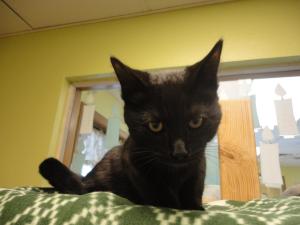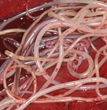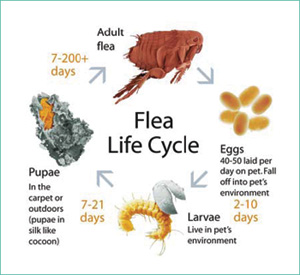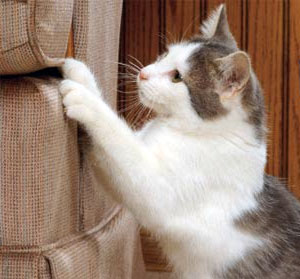|
GETTING OFF TO A HEALTHY START- KITTEN
Getting your new kitten off to a healthy start is very important. There are eight areas of preventative care regarding your cat's health every cat owner should know. Your kitten's specific needs depend on his/her lifestyle.

I. IMMUNIZATIONS
Kittens need a series of vaccinations to establish immunity to specific diseases. After the initial series, adult cats need only to be boostered periodically. There are three types of vaccinations for kittens at the following recommended schedule:
- 8 weeks: FVRCP/P #1 (Distemper and upper respiratory viruses), FeLV vaccination #1(leukemia virus)
- 12 weeks: FVRCP #2, FeLV #2
- 16 weeks: FVRCP #3, Rabies vaccination
All kittens should be screened for FIV and FeLV at their first visit prior to vaccinations. Kittens that test positive for FeLV and/or FIV may be harmed if they receive the vaccine. If your kitten tests positive for one or both of these viruses we will discuss the next diagnostic and therapeutic steps.
It is true that some kittens can develop a vaccine induced sarcoma, a type of cancer. There is a 1 in 10,000 chance of this happening. These reactions are most commonly associated with the FeLV and Rabies vaccinations that use an adjuvant. Because contracting rabies or FeLV is far worse than the sarcoma, we strongly believe in vaccinating all kittens. To reduce the risk of vaccine induced sarcomas we use the safest non-adjuvanted vaccines available.
All immunizations are boostered the first year and then according to the pet's lifestyle and risk factors.
II. INTESTINAL WORMS
A stool sample should be checked at least once a year and can be done at your cat's physical examination. The sample is concentrated and examined under a microscope for evidence of specific worm eggs. Only two of the five intestinal parasites are visible in stool. Hookworms and Coccidia are usually too small to see, and rarely pass in the stool. Kittens should be wormed at the first visit because nearly 100% are born with worms. Because worms can cause serious illness in people, especially children, it is important to keep your pet worm free. Cats that have outdoor access should be wormed every two months for Roundworms and Tapeworms, which can be picked up by hunting or exposure to fleas.
III. HEARTWORM DISEASE
Like dogs, cats are susceptible to heartworm disease. This worm looks like a piece of spaghetti, lives in the heart, and is transmitted to cats by the bite of an infected mosquito. It is just as common in indoor cats as outdoor cats. We all know mosquitoes can find their way into the house easily. Symptoms can vary, but resemble an asthma attack, or even sudden death from unknown causes. We recommend all cats be placed on a monthly Heartworm Preventative year round. Many of these preventatives will also prevent major intestinal parasites. If you have any questions about heartworm in cats please feel free to ask us at your appointment.

IV. FLEAS, TICKS, MANGE, LICE AND EAR MITES
These parasites live on or under your cat's skin. They cause itching, skin infections, anemia, hearing problems and worms. Unprotected cats may bring fleas may into your home where they can cause similar signs in people. Once in a home, fleas can be very difficult to remove. We recommend all cats be placed on year round flea and tick prevention for both their protection and their adopted families. It is important to note that some flea and tick preventative can cause serious neurological issues and even death in cats. Before starting any flea and tick prevention your cat should first be examined by a veterinarian.

V. SCRATCHING BEHAVIOR and DECLAWING
Declawing is an irreversible procedure when the finger tips and front claws of a cat are amputated. This is most commonly done to prevent destructive scratching behavior. Cats need to scratch objects as part of their natural stretching and scent marking behaviors. Some cats will scratch furniture and other inappropriate objects if they are not given proper scratching alternatives such as scratching posts. The Animal Hospital of Chetek does NOT RECOMMEND declawing your cats. We find that most cats will not exhibit inappropriate scratching behavior when provided with appropriate scratching posts, proper behavioral training, and weekly nail trimmings. In some circumstances cats will need to be declawed for the safety of their adoptive families. If you choose to declaw your pet it is best done at an early age with a laser or radiowave surgical instrument. Declawing at an early age with these precision instruments will reduce some of the phantom pain cats may experience as the result of being amputees. The Animal Hospital of Chetek performs all declaws under general anesthesia utilizing radiowave surgery.

|
